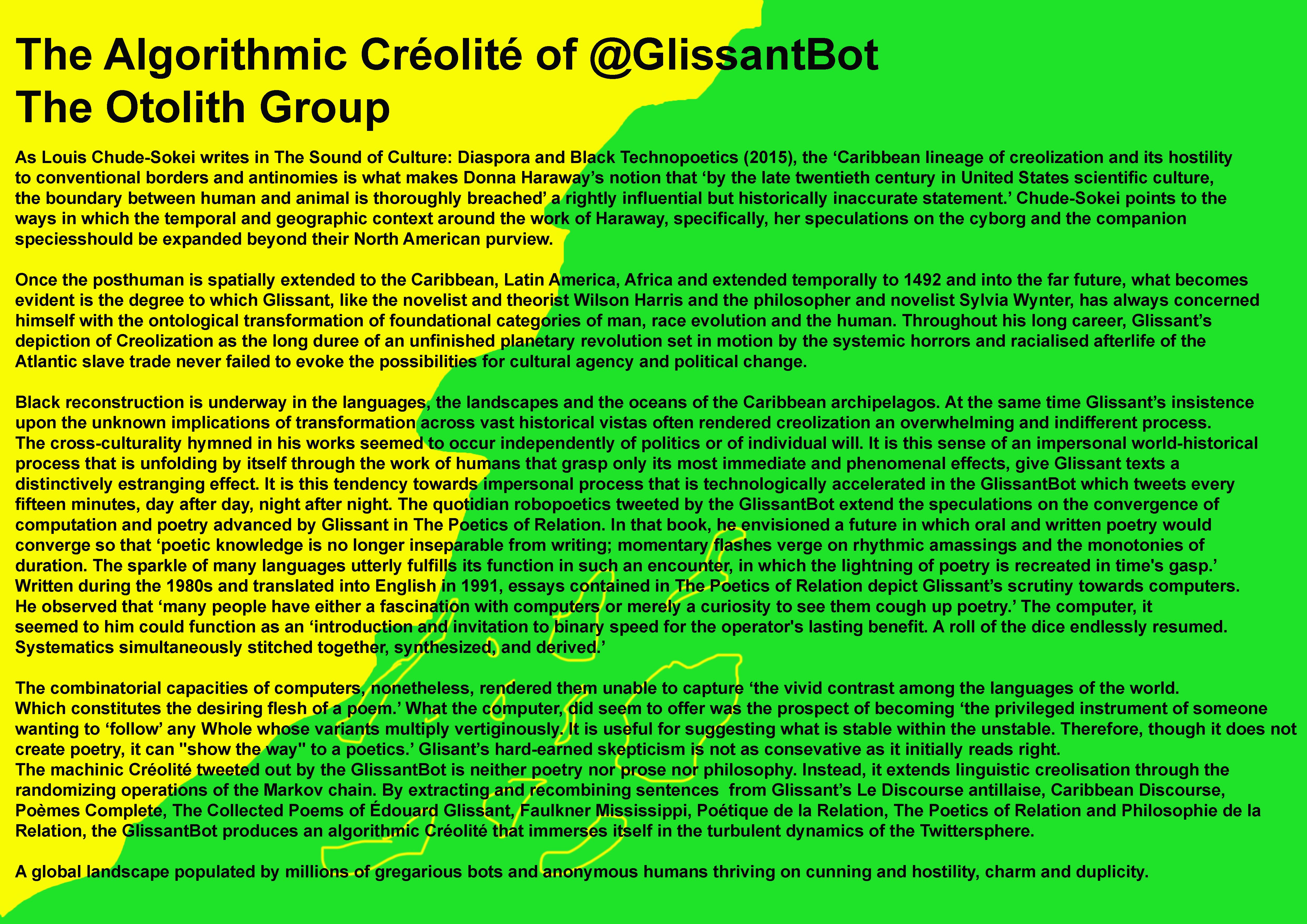The Algorithmic Poetics of @GlissantBot The seemingly ephemeral @GlissantBot that began to tweet on the evening of 15 April 2017, and will continue to do so every fifteen minutes, day after day, night after night, for as long as the Twitter platform operates as a planetary interface, opens a vector between evolution, computation and creolization. The koans tweeted by @GlissantBot are composed from paragraphs, chapters and poems selected from Le Discourse antillaise (1981), Caribbean Discourse (1989), Poétique de la Relation (1990), Poèmes Complete (1994), The Poetics of Relation (1997), Faulkner Mississippi (1999), The Collected Poems of Édouard Glissant (2005), Philosophie de la Relation: Poésie en étendue (2009). These selections were scanned and converted by optical character recognition into a corpus that is transformed by a Markov Chain algorithm. The algorithm calculates the statistical probability that specific phrases will be followed by other specific phrases and then builds these statistical regularities into 140 character sentences which it automatically posts as tweets. The existence of @GlissantBot extends an ongoing debate with himself developed by Glissant throughout the 1980s in essays eventually published in Poétique de la Relation in 1990. Glissant envisioned, with some trepidation, a future in which oral and written poetry would converge with computation. He observed that ‘many people have either a fascination with computers or merely a curiosity to see them cough up poetry.’ The efficiency of the computer, he argued, rendered it unable to capture the 'vivid contrast among the languages of the world which constitutes the desiring flesh of a poem.’ What the computer could offer instead, was access to a totality that could be continually expanded. It could become ‘the privileged instrument of someone wanting to foIlow ‘any Whole whose variants multiply vertiginously.’ What Glissant glimpsed, then, was the computer’s capacity to generate what coders call a data set or what is commonly described today as big data. The operations of the Markov Chain impose a probabilistic randomisation on Glissant’s poetics of creolisation that does not generate an algorithmic créolité; instead, it generates an algorithmic poetics. The implications of this poetics emerges more clearly once it is rephrased as what it is: the algorithmic classification of poetics according to mathematical processes of probability. Such a process tends towards a recursive confrontation with the definition of poetics that leads outside of its human-centred history towards a speculation upon its probabilistic future. This speculation in turn leads towards an inferential confrontation with the question of what a character or a letter might be, what a word could be, what speech might be, what language might be and what the human could be beyond the limits of the anthropic.
Commissioned by Hans Urich Obrist and Asad Raza

